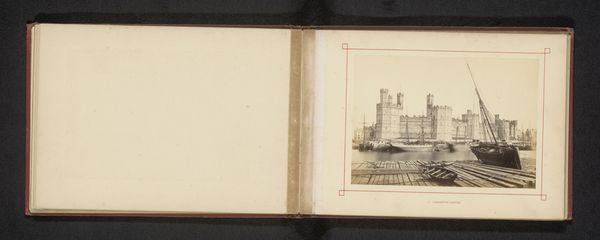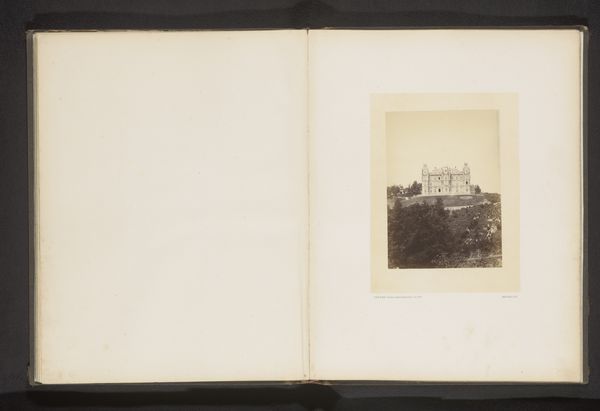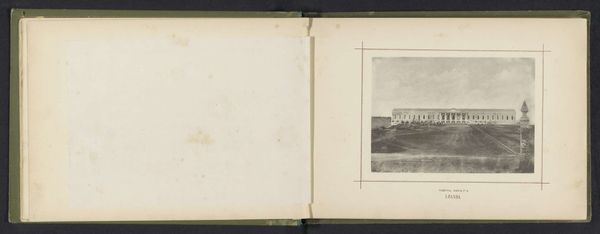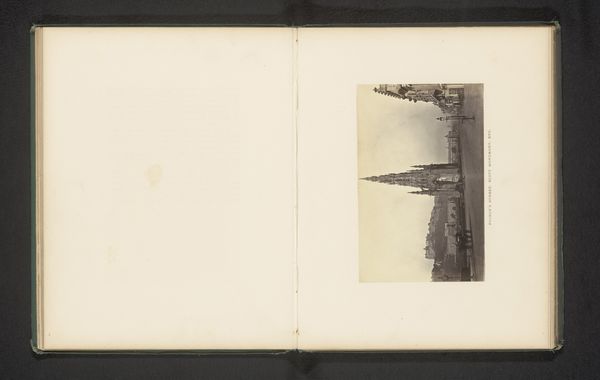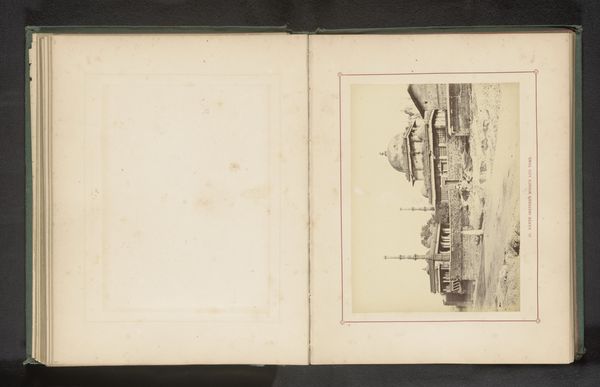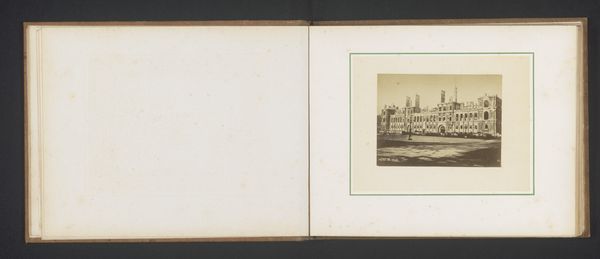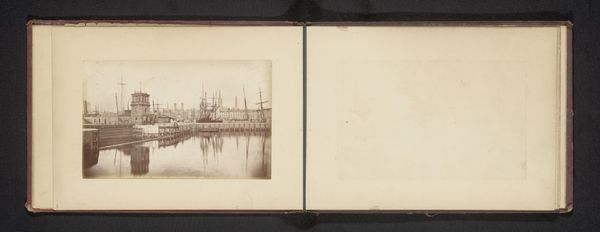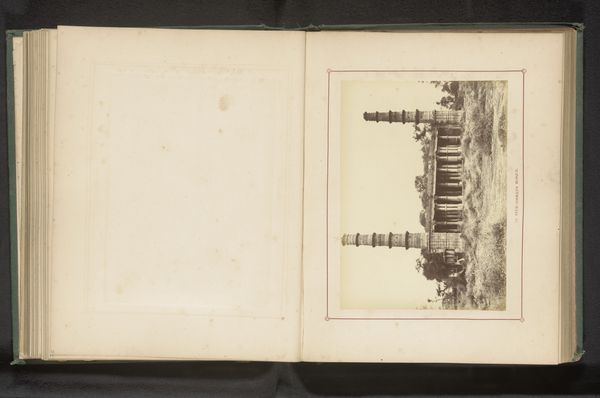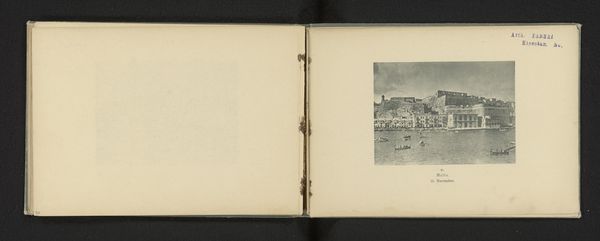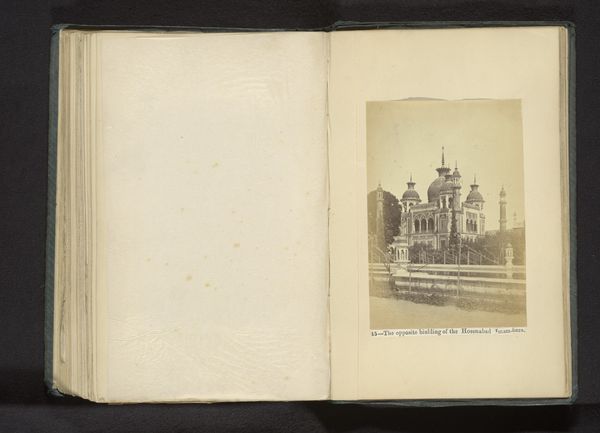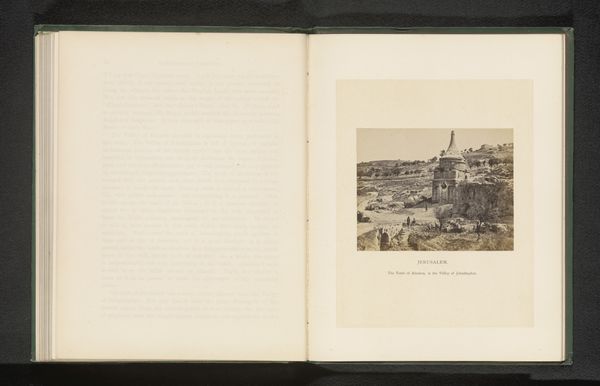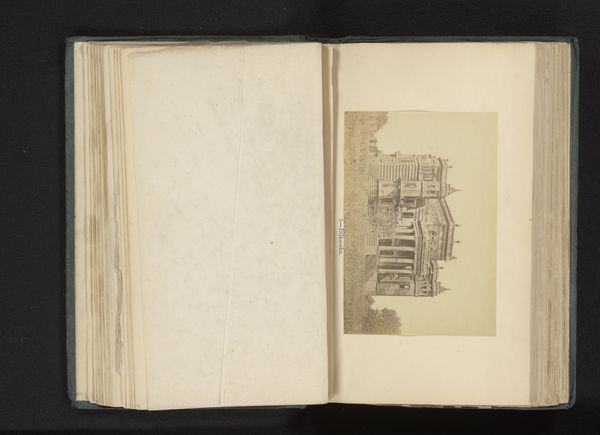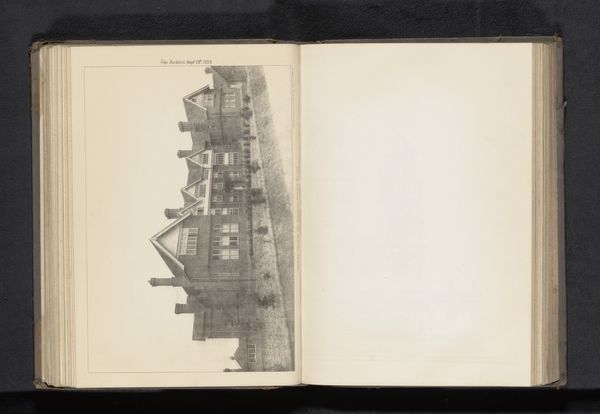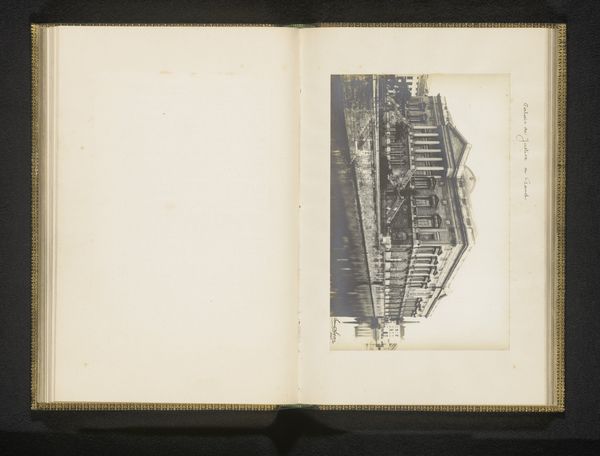
photography, albumen-print
#
landscape
#
photography
#
watercolor
#
albumen-print
Dimensions: height 115 mm, width 200 mm
Copyright: Rijks Museum: Open Domain
James Valentine made this photograph of Broughty Ferry Castle in the 19th century, using the wet collodion process, a technique that transformed photography into a burgeoning industry. This process involved coating a glass plate with chemicals, exposing it in the camera while still wet, and then developing it immediately. The resulting glass negative could then be used to create multiple prints on albumen paper. This method was pivotal because it allowed for mass production. Valentine's studio in Dundee, Scotland, became a leading publisher of photographic views, capitalizing on the Victorian era's fascination with travel and scenery. These images, often bound into albums like this, were highly sought after as souvenirs. The labor-intensive process behind each print, from preparing the collodion to printing, highlights the blend of craft and industry characteristic of the time. Valentine was not just an artist, but an entrepreneur who turned photography into a visual commodity.
Comments
No comments
Be the first to comment and join the conversation on the ultimate creative platform.
